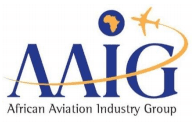Experts under the aegis of the African Aviation Industry Group (AAIG) have proposed action plans on how to help solve many of the problems confronting aviation in Africa.
To this end, the AAIG held a high-level webinar monitored by AirInsight to deliberate on practical solutions for the reduction of the high cost of air transport operations in the continent.
Staged under the theme: “Achieving Affordable Air Transport across Africa”, stakeholders at the webinar agreed on a set of actions for implementation with defined timelines to achieve the goal of sustainable African aviation industry.
The event was attended by over 250 participants comprising representatives of African aviation institutions, Development agencies, African airlines, Civil Aviation Authorities, Airport Operators, Airline Associations, government entities, Aircraft manufacturers, and aviation solutions and service providers.
In addition to that, aviation stakeholders further identified key challenges affecting the sustainability of African aviation such as safety and security concerns, poor intra-Africa connectivity/market access limitations, and inadequate infrastructure, among others.
To AAIG, aviation has been severely impacted by the COVID-19 pandemic, coupled with industry restart and recovery which they said must be viewed as an opportunity for the aviation industry ecosystem to address the issue of high operational costs in Africa.
Excessive and unjustified taxes, charges, and other government-imposed fees and levies on international aviation, AAIG noted have negative impacts on the industry’s competitiveness and national economies.
The group urged states to adhere to the International Civil Aviation Organisation (ICAO) Policies on User Charges (Doc 9082) and ICAO’s Policies on Taxation on International Air Transport (Doc 8632). These AAIG reiterated are the reference documents that can ensure that all states levy fully justified aviation charges and taxes.
“It is therefore important that there is an appropriate regulatory body in each state to oversee and ensure the implementation of these policies. Only under such favorable regulatory environments, can we expect to see lower industry operating costs translated into lower fares for passengers”, stakeholders stated.
According to AAIG, African aviation also faces a high cost of financing, describing the sector as very capital intensive with access to competitive financing contributing to reducing the operating cost to African airlines.
The risk perception to African airlines is very often biased and leads to higher interest rates, which generate a higher cost of ownership and high fares if any financing at all. African financing institutions have a role to play in de-risking the aviation sector, in order to allow more favorable terms for the sector.
In respect of operators’ costs structures, airlines, airports, ANS, and services providers, according to AAIG, need to constantly monitor their costs structures, in order to operate at maximum efficiency. They also need to extend cost-saving and cost avoidance measures to operators. High fuel costs for African aviation is also extremely burdensome on the operating cost structure of airlines. For air transport affordability and for equivalent distances, it is a fact that air ticket fares are higher in Africa compared to other regions.
Due to the prevailing low Gross Domestic Product (GDP) in most African States, its citizens cannot afford to fly as often as citizens from other continents. According to AAIG, stakeholders must address the fact that African citizens pay the highest fares to travel by air, regionally and internationally.
“Appropriate measures need to be taken by governments to reduce the cost of aviation to make travel more affordable for African citizens”.
Views: 0




